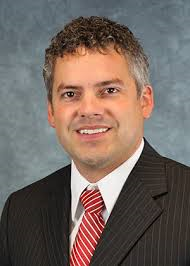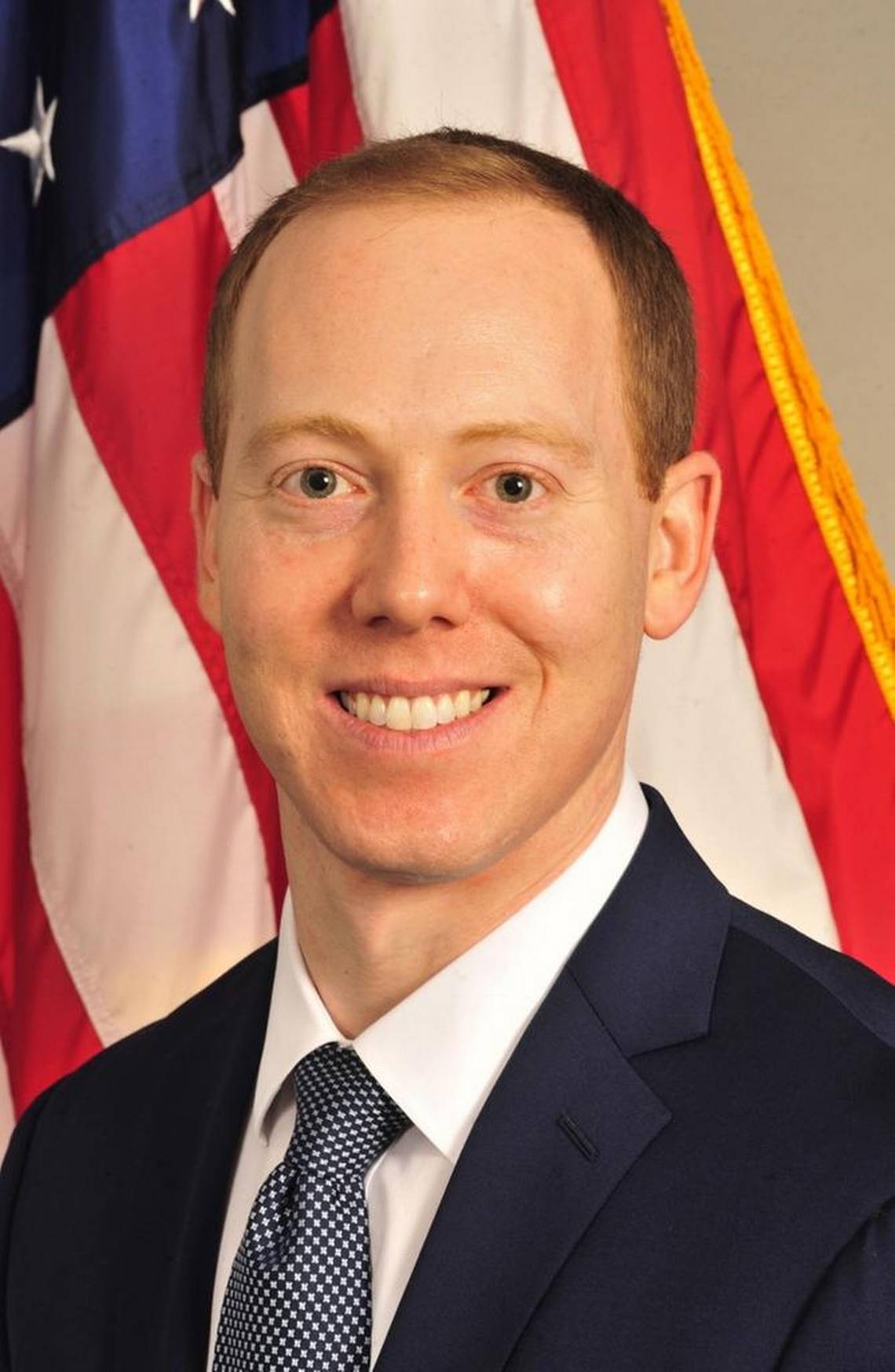State Rep. Tom Cox is in a political no man’s land.
The conservatives don’t like him because he raised taxes.
The liberals don’t like him because he backed a faith-based adoption bill that critics say discriminates against LGBT parents.
Either way Cox turns, the Shawnee Republican finds himself facing down liberal and conservative groups that share nothing in common.

It was always expected that the Democrats would mount a vigorous effort to unseat Cox in a district that went for Hillary Clinton in 2016 and Paul Davis in the 2014 governor’s race.
What’s different this year is that the conservative group Americans for Prosperity is siding with Democrats to take down moderate Republicans.
While it’s typical for Democrats to compete for House seats held by moderate Republicans, Americans for Prosperity is running a parallel campaign that puts moderates in a political pincer.
“Democrats don’t care if I vote with them. They care about whether I have a ‘D’ or an ‘R’ next to my name,” Cox said. “It’s no different from the far right wanting purity tests.”
Americans for Prosperity has sent out mailers targeting Cox and moderate Republican state Rep. Melissa Rooker — both of whom are fighting off robust challenges from Democrats. The mailers ripped them for supporting the repeal of former Gov. Sam Brownback’s tax cuts.

It also sent off similar mailers against moderate Republican Rep. Linda Gallagher, the sister of the House majority leader. Gallagher has a Democratic challenger in her district, which covers parts of Lenexa, Shawnee and Overland Park.
“It’s weird for AFP to be targeting moderate Republicans in the general election,” Gallagher said. “I don’t know that they’ve done that before this year.”
The mailers by Americans for Prosperity — usually associated with the conservative wing of the GOP — put the organization in the unusual position of campaigning against Republican incumbents running against Democrats for the Kansas House.
Interviews indicate that eliminating moderate Republicans could empower conservatives within the House GOP caucus where — up until the primary — conservatives held a 44-41 majority that could shift depending on the issue.
Conservatives gained maybe as many as five seats after the primary, but that number may fluctuate depending on the outcome of the general election in less than three weeks.
Jeff Glendening, Americans for Prosperity’s state director, said it’s not about electing either a Democrat or a Republican.
“We’ve always said we’re not the Republican organization that some people like to think we are,” Glendening said.
“It’s not about winning and losing at the ballot box, it’s about what happens when they get back into session,” he said. “It’s about educating on the issues we care about.”
Asked if Americans for Prosperity might end up electing Democrats who have no interest in its issues, Glendening said, “I would say for the most part (moderate Republicans) don’t either — at least they haven’t.”
House Majority Leader Don Hineman, who’s leadership position could hang in the balance with the outcome of the general election, said he thinks AFP’s agenda is very clear.
“They want to remove moderate Republicans who won’t toe the AFP line — Republicans that are too independent and too focused on representing their district to cede to AFP,” he said.

“They would like to replace them with Democrats who they view as very, very vulnerable in the 2020 elections,” Hineman said. “Their strategy is to remove a moderate now, replace them with a weak Democrat and replace them with a compliant conservative Republican two years from now.”
Kelly Arnold, chairman of the Kansas Republican Party, said the GOP supports its candidates. He said groups like Americans for Prosperity have their own members whom they need to serve. While Republican policies can overlap with outside groups’, there are times when they might not coincide.
“We, as the Republican Party, are going to continue to fight to make sure our Republicans get elected, whether or not outside groups try to influence those elections or not,” Arnold said.
Gallagher said she doesn’t feel as if she’s in as much of a vice as the other moderate Republicans facing opposition from two sides.
Gallagher said she has plenty of Democratic support, and her opponent — Democrat Susan Ruiz — hasn’t very been vocal against her.
She’s not convinced the AFP mailer is costing her much support as she meets with voters.
“I haven’t had a single person at the door complain to me about supporting the tax reform bill,” Gallagher said. “Not one person has said, ‘I’m mad at you for raising my taxes.’ ”
Cox and Rooker, meanwhile, have castigated Democrats for running campaigns similar to the conservatives’, even while having only modest policy differences.
“What I am caught in the middle of are two different sides who are only looking at what they want,” Rooker said. “There is nobody I will make happy 100 percent of the time.”

Rooker is particularly bewildered about why she is getting hit from the left when she’s supported expanding Medicaid, voted to repeal the Brownback tax cuts and helped lead efforts to put more than $800 million into schools.
“We have ideologues on the left who refuse to acknowledge that $523 million was a hell of a number to put into the (education) system this year on top of the $300 million we put in last year,” she said.
“Because it wasn’t perfect, they kept voting against it. Now, they’re coming after me, criticizing me for voting for a bill that essentially kept schools open and avoided a constitutional crisis,” she said.
Rooker is in a district that went 60 percent for Clinton two years ago and 62 percent for Davis in 2014. So capturing the northeast Johnson County seat would be a prize for Democrats.
Rooker’s Democratic challenger, Rui Xu, acknowledged that he and the incumbent agreed on issues such as LGBT rights, education and Medicaid expansion.

He said he would be more aggressive about pushing for the legalization of medicinal and recreational marijuana, lowering the sales tax on food and focusing on environmental issues.
“We need to be the ones advocating for the really good progressive ideas in Kansas,” Xu said of Democrats. “With a moderate Republican in this seat — even if she’s a full believer in these ideas, which I don’t think she is — she would not be able to be the one driving the leadership of it.”
Democratic activists have hammered Rooker for not publicly supporting Democrat Laura Kelly in the governor’s race, taking money from a political action committee affiliated with Congressman Kevin Yoder and voting against a net neutrality proposal on the House floor.
Rooker acknowledged receiving money from the Yoder-related PAC but chose not to endorse him in either 2016 or 2018. She said there were no strings attached to the money, adding that she uses her campaign fund to donate money to charity. “As far as I am concerned, Kevin’s money has been paid forward into the community,” she said.
On Kelly, the lawmaker said she does not support Republican Kris Kobach in the governor’s race but will not make an endorsement. She said she urges voters to decide based on what they hear from the candidates.
The Kansas Democratic Party sent out a mailer against Rooker showing her vote against a net neutrality bill while listing all of the campaign contributions from telecommunication companies.
Rooker said she’s not opposed to the principle of net neutrality.
However, Rooker said she didn’t think the net neutrality proposal introduced on the House floor had been vetted sufficiently. She said it was a federal issue that might have invited litigation. She noted that she has stood up to telecomm interests, voting against a bill last session extending tax credits for Sprint.
Ethan Corson, executive director of the Kansas Democratic Party, said there’s nothing unusual about Democrats challenging moderate Republicans. He makes no apologies for running aggressive campaigns against moderates even if they share similar policy goals. He particularly cited Cox.

“Tom Cox pretends to be a moderate when he’s in his district and votes likes a conservative in Topeka most of the time, with a few exceptions,” Corson said in an interview.
“We have somebody who would be a much better representative of that district, and we’re out there making the case that Laura Smith-Everett would do a better job for the people in that district.”
Cox said he figured he would end up under fire from both sides. He says the mailers are not accurate, citing a line from a one that said he supported allowing teens to carry guns in schools.
Cox said he initially voted to reduce the age for carrying a concealed weapon. However, he voted for another measure repealing a state law allowing concealed carry on college campuses.
He ultimately voted against the bill reducing the age for concealed carry after the campus carry provision died.
“Democrats hate moderate Republicans more than they hate any conservatives. They think I am worse than Kobach because I will pull voters from them,” Cox said. “They think if a moderate Republican holds that seat, a Democrat should hold it.”
Corson said there’s nothing unusual about the Democratic Party’s strategy.
“I don’t think talking about somebody’s voting record is a scare tactic,” Corson said. “Making somebody’s constituents aware of what their representative is doing and how they voted, I don’t think that’s a scare tactic.













